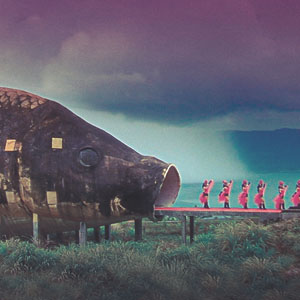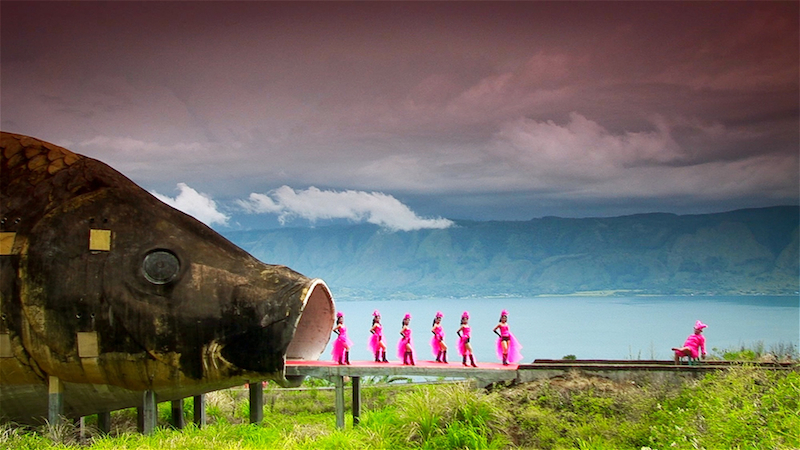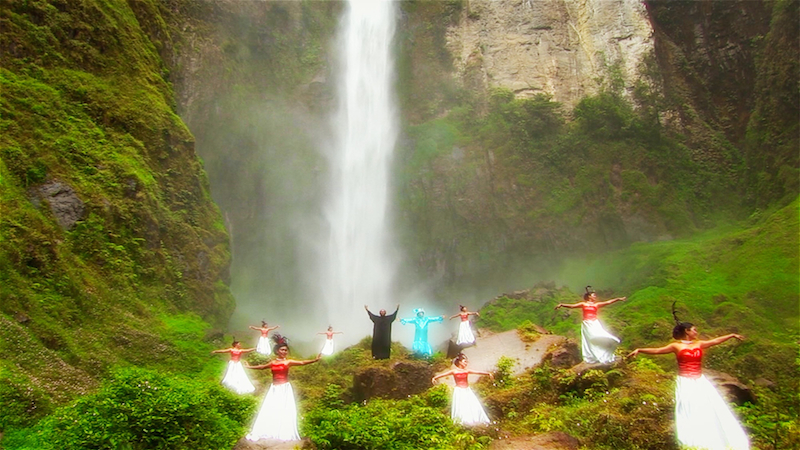The Act of Killing Review
The Oscar nominated documentary “The Act of Killing”, is an astonishing, one-of-kind film that chronicles a period between 1965 and 1966 in Indonesia when feared Death Squads carried out mass killings and unspeakable atrocities. Director Joshua Oppenheimer uses an experimental approach to the telling of these historical events that succeeds in pushing the documentary genre far beyond its usual limits. He allows the former leaders of the Death Squads, the very men who perpetrated the atrocities, to create their own dramatic reenactments of what they did. The film’s achievement has already been widely recognized by critics, winning the 2014 Golden Globe for Best Documentary and positioned as a frontrunner for the Academy Award in the same category.
“The Act of Killing” centers on the 1965-66 anti-communist purge in Indonesia during which an estimated 500 000 people were massacred. The killings are depicted in Indonesia as a patriotic campaign and the thugs who committed the executions are considered heroes. In his film, Oppenheimer forsakes traditional documentary conventions and opts for a unique approach. He approaches Anwar Congo, a death squad leader who boastfully claims to have killed more than 1000 “communists” during the purge, and convinces him to direct his own reenactments of the killings. “The Act of Killing” documents Congo’s filmmaking process and most interestingly Congo’s personal reactions to what he is making.
This subversion of documentary conventions creates a film that is frighteningly surreal. The horrific nature of the events contrasted with the bizarre and quirky reenactments creates a tone of uncanny black humour. Watching Congo flauntingly show the camera his technique for quick and clean executions (using ‘garrote wire’, like in gangster movies) before dancing the cha cha cha in the same spot where he once killed hundreds of men, was offsetting to say the least. In another scene, Congo plays the victim, an accused communist being tortured into a confession. Congo is visibly shaken up during the reenactment and after the first take quietly says he can’t film the scene again. Later during a screening of that same scene at Congo’s house, he asks Oppenheimer, “Did the people I tortured feel the way I do here? I can feel what the people I tortured felt.” He continues, “But I can feel it, Josh. Really, I feel it. Or have I sinned. I did this to so many people, Josh. Is it all coming back to me? I really hope it won’t. I don’t want it to, Josh.” The emotion of remorse seems to be on the cusp of emerging throughout the entire film and it is only through Congo’s screenings of his own re-enactments that it is expressed.
The questions explored in Oppenheimer’s film dig far deeper than the usual who, what, where, when, why. “The Act of Killing” asks ambiguous questions about human nature and the shaping of society. If a murderer is celebrated and revered by his society how will he see himself? Is it possible for him to justify what he has done and protect his conscience? One of the film’s executive producers Academy Award winner Errol Morris (“The Fog of War”) says of “The Act of Killing”, “Oppenheimer is not offering a historical account of what happened in Indonesia, but rather an examination of the nature of memory and of history.”
The brilliance of this approach is that it serves as a more powerful comment on the Indonesian Anti-Communist purge than any traditional chronicle of the event could have. Just as Anwar Congo was forced to re-live and re-think his own dark history, the viewer must contemplate the horrors through Congo.
With “The Act of Killing”, Joshua Oppenheimer has created a piece of art that encourages ambiguous contemplation while maintaining a heavy political weight to its message. It is a great achievement in filmmaking and one of the best documentary films I have ever seen.
- Marshall Jeske





